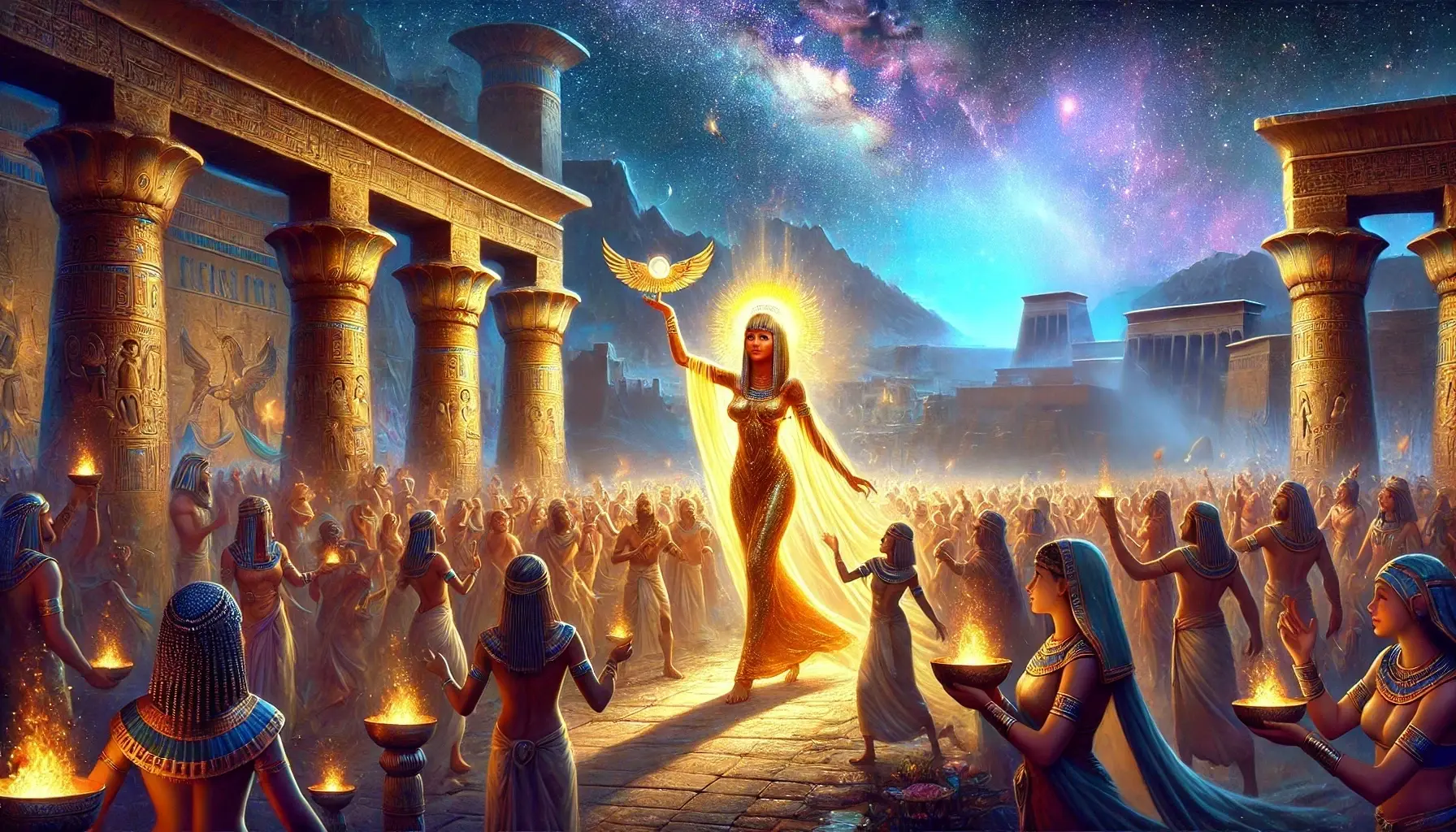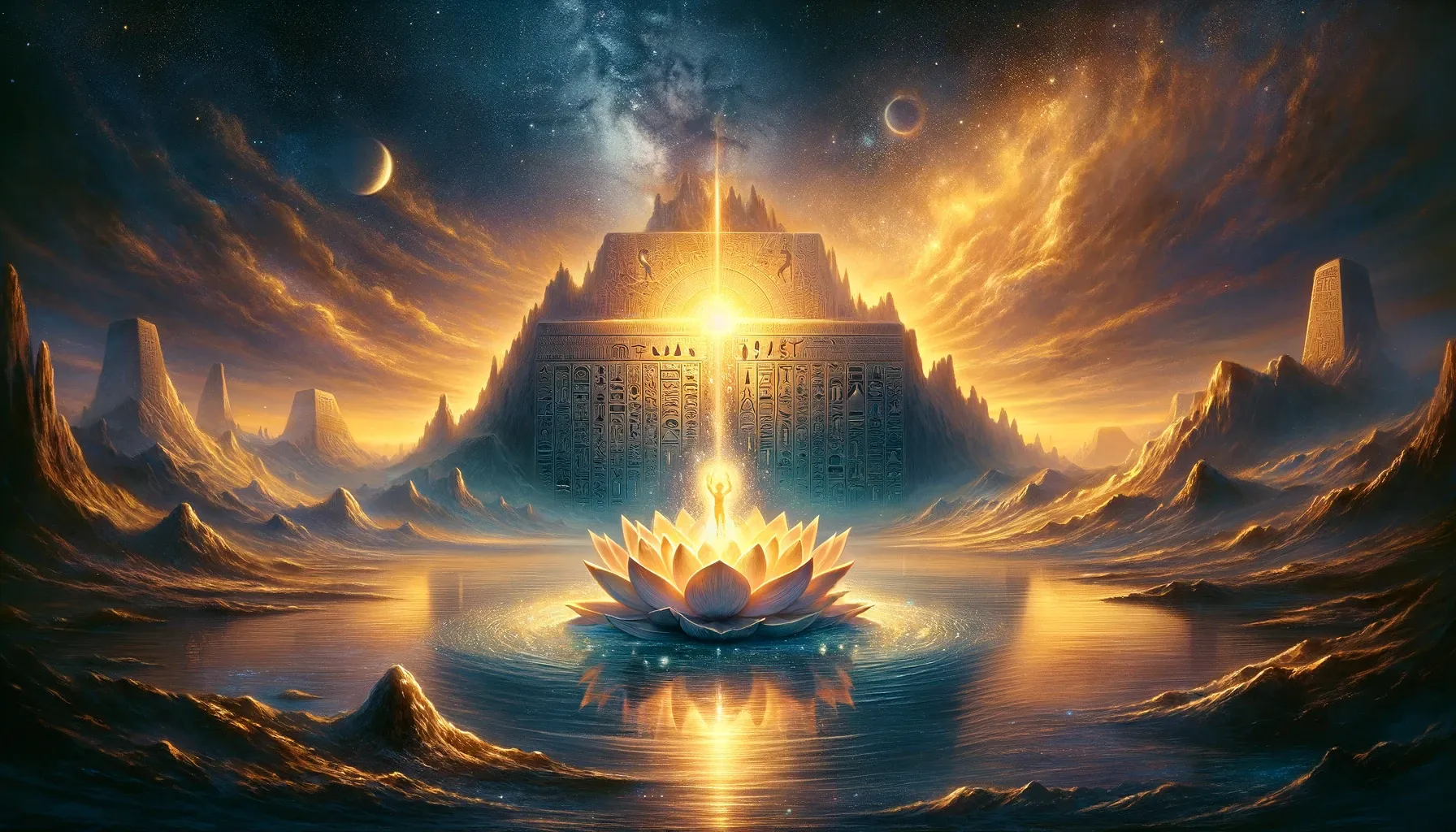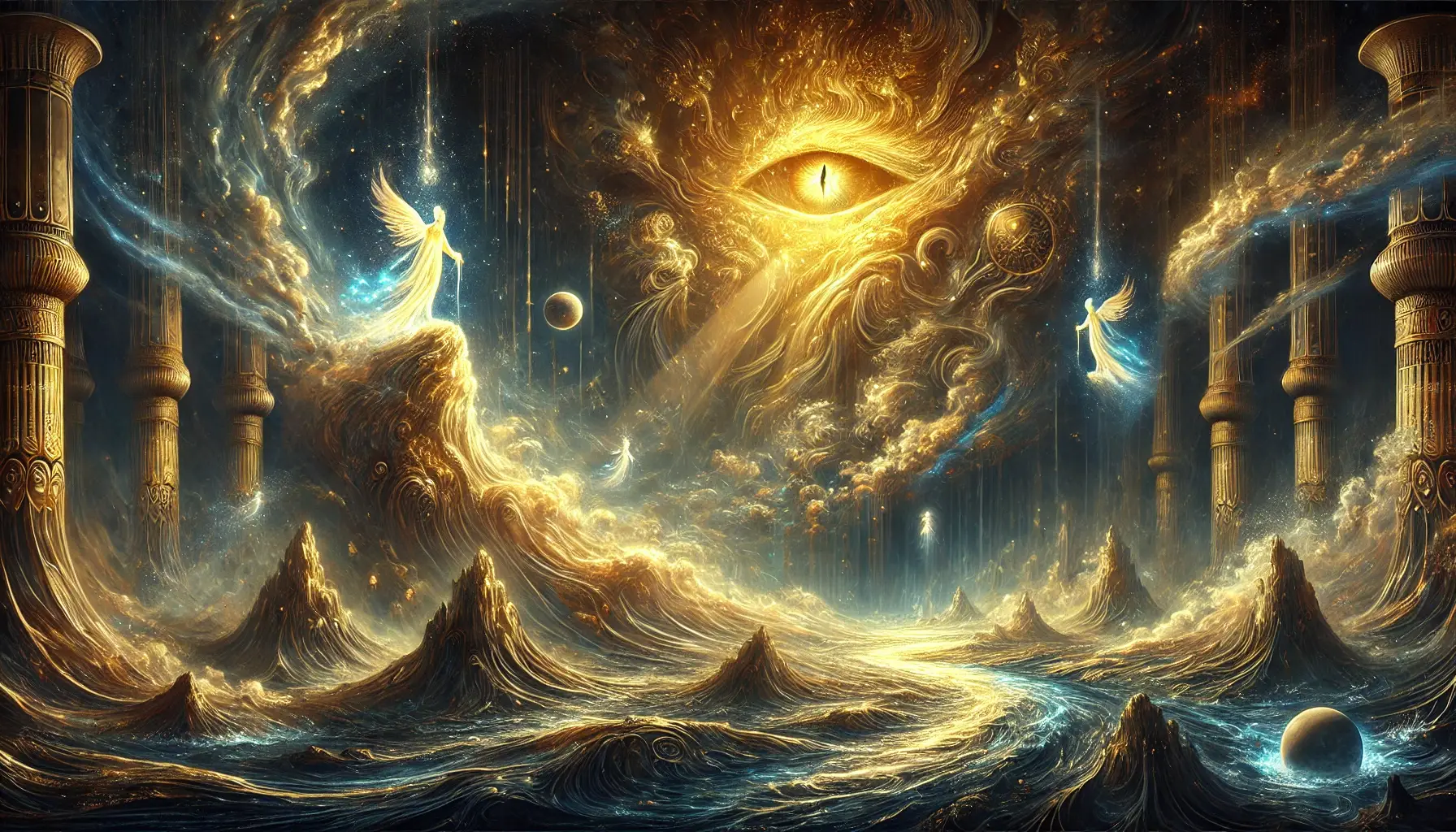The Fracture of the Divine Harmony
In the ancient days, before the desert sands claimed their dominance, the gods of Egypt ruled in symphonic unity. The sky goddess, Hathor, once known as the golden one of joy, radiance, and love, walked among mortals and immortals alike, her presence a balm to the restless earth. Yet, as with all divine beings, her temper was as vast as her grace. A rift fractured this harmony when Ra, the solar sovereign, grew displeased with humankind. Their defiance gnawed at his patience, their irreverence a sharp thorn in the fabric of his eternal order.
Ra summoned Hathor to exact vengeance. She transformed into Sekhmet, the lioness-headed goddess of wrath, her golden beauty twisted into an instrument of destruction. Sekhmet raged through the lands, her fury insatiable. The Nile ran red with the blood of her victims, and the earth quaked under her stride. Mortals, once defiant, now cowered before the lioness’s wrath. But her frenzy threatened not only the rebellious but the very balance of creation itself.
Ra, realizing his error, sought to quell her rage. Yet Sekhmet’s bloodlust blinded her to his pleas. She had become a force of chaos, untethered from reason, a distant goddess consumed by vengeance.
The Search for the Wandering One
Ra turned to Thoth, the ibis-headed god of wisdom and writing, for counsel. Thoth, with his infinite knowledge and measured speech, proposed a plan. “The lioness cannot be confronted with force, for her fury will devour even the mightiest. She must be enticed to return, soothed back into her gentler form.”
The gods devised a ruse. They brewed a vast quantity of beer, dyed red with the juice of pomegranate, to resemble the blood Sekhmet craved. By night, they poured it over the barren fields where she was said to roam. The false blood glimmered under the moon’s silver light, an offering to her insatiable hunger.
When Sekhmet found the red-stained earth, her nostrils flared, and her tongue tasted the liquid. Believing it to be the blood of her enemies, she drank deeply. The fermented brew worked its spell, dulling her senses, softening the edges of her fury. As the dawn broke over the horizon, the lioness swayed, her once-lethal stride now languid. The intoxication drew her closer to her former self, and Sekhmet melted back into Hathor, her golden visage radiant once more.
The Pilgrimage of Renewal
Though Hathor had returned, her spirit was restless. The transformation from wrath to joy left her fractured, a duality that mirrored the tensions of the cosmos. To mend her soul, she embarked on a pilgrimage far from the lands of Kemet. She traveled south, crossing the first cataract of the Nile into the untamed lands of Nubia.
The journey was arduous, the desert winds unrelenting, the sun a relentless sentinel overhead. Yet Hathor found solace in the wilderness. She bathed in hidden oases, her reflection shimmering in the still waters. The wild beasts, sensing her divine essence, gathered near but kept their distance, as if in reverence.
In her solitude, Hathor danced beneath the stars. Her movements stirred the sands, creating ripples that whispered to the heavens. The gods watched in silence, their breath held as she sought to reconcile the duality within her. The lioness and the cow, wrath and love, destruction and creation—all danced within her being, seeking harmony.
The Call to Return
Ra, though relieved by her transformation, lamented her absence. Without Hathor, the festivals of joy faltered, and the songs of mortals grew hollow. He sent messengers to coax her back to the heart of Egypt. Among them was Anubis, the jackal-headed guide of souls, whose words carried the weight of eternity.
Anubis found Hathor among the acacia trees, her golden skin glistening under the sun’s embrace. “Lady of the Golden House,” he began, his voice low and resonant, “Egypt calls for your return. The people’s hearts are heavy, their spirits dimmed without your light.”
Hathor’s gaze remained fixed on the horizon. “I cannot return as I am. The lioness’s shadow lingers within me, a reminder of my fury. How can I bring joy when my own soul is divided?”
Anubis knelt before her, his eyes earnest. “It is precisely because of your duality that you are needed. Joy without the memory of sorrow is hollow. Love without the temperance of wrath lacks depth. Your people do not seek perfection; they seek wholeness.”
Moved by his words, Hathor agreed to return. Yet she demanded one condition: a grand festival to celebrate the reunion of the divine and mortal realms, a feast to honor the complexities of existence.
The Festival of the Distant Goddess
Upon her return, Ra decreed the Festival of Drunkenness, a celebration to commemorate Hathor’s journey and the restoration of balance. The temples overflowed with offerings of beer, bread, and fruit. Music filled the air, the rhythmic beat of drums mingling with the ethereal tones of sistrums. Men and women, young and old, danced until their feet ached, their laughter rising like incense to the heavens.
Hathor walked among them, her golden presence a beacon of joy. The lioness lingered in her shadow, a silent reminder of her power. Yet the people did not fear her duality; they embraced it, for they too carried the contradictions of life within their hearts. The goddess’s laughter echoed through the night, a sound both comforting and haunting, like the Nile’s eternal song.
The Eternal Image
As the festival reached its crescendo, Hathor ascended the dais of her temple. She lifted a sistrum, its handle adorned with the face of her lioness form, and shook it with a deliberate rhythm. The sound reverberated through the crowd, a call to unity. The people fell silent, their eyes fixed on her radiant form.
“Rejoice, children of Kemet,” she declared, her voice carrying the cadence of the Nile’s flow. “For life is both joy and sorrow, creation and destruction. To live fully is to embrace the lioness and the cow within.”
In the final moments of the festival, Hathor descended among the people. She placed her hands upon a child’s head, her touch as warm as the first rays of dawn. The child looked up at her with wide eyes, a mixture of awe and innocence. Hathor smiled, her golden form shimmering, and whispered words that only the child could hear.
As the festival waned and the people returned to their homes, the image of Hathor’s final act lingered in their minds. The child, now marked by the goddess’s blessing, ran to the edge of the temple’s courtyard and gazed at the horizon. The stars seemed to dance above, their light a mirror to the goddess’s laughter. And in the silence that followed, the Nile’s waters carried her song, eternal and unbroken, weaving the story of her return into the fabric of the cosmos.
The distant goddess had come home, not as she was, but as she had become: a being whole in her duality, radiant in her complexity. The lioness and the cow, the wrathful and the joyous, danced within her still, a reminder that even the divine must reconcile the contradictions of existence. And as the stars faded into the dawn, Hathor’s legacy endured, etched in the hearts of her people and the eternal rhythm of the Nile.



